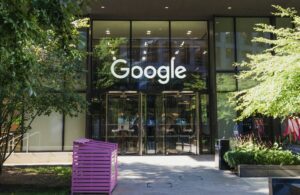ButSpeak.com
News which Matters.

Google, a subsidiary of Alphabet Inc., will not face a jury trial over its alleged dominance in digital advertising. On Friday, a federal judge ruled that Google’s $2.3 million payment to cover the U.S. government’s claim for monetary damages prevents the case from going before a jury. Instead, U.S. District Judge Leonie Brinkema will directly hear the non-monetary demands, as is customary in antitrust cases, with the trial set for September 9.
This decision marks a significant turn in the lawsuit filed by the Justice Department and a coalition of states last year. The lawsuit accuses Google of unlawfully monopolizing digital advertising and overcharging users, primarily seeking to dismantle Google’s digital advertising business to foster competition.
Google has consistently denied any wrongdoing and emphasized that its payment does not imply an admission of liability. The company criticized the damages claim, describing it as a “meritless attempt to pick winners and losers in a highly competitive industry.”
Initially, the government demanded over $100 million in damages but later reduced the claim to under $1 million. Google’s $2.3 million payment includes interest and accounts for the possibility of tripled damages under U.S. antitrust laws.
Google had contended that the federal government manufactured the damages claim to secure a jury trial, while the Justice Department argued it was open to resolving the financial aspect if Google agreed to a larger settlement.
The case’s non-jury trial will now focus on the core antitrust issues, examining whether Google’s practices in the digital advertising market violated competition laws. This decision avoids what could have been the first-ever jury trial in a civil antitrust case brought by the U.S. Justice Department.
As the trial approaches, the tech industry and legal experts will closely watch how this high-profile case unfolds, potentially setting precedents for future antitrust actions in the digital age.